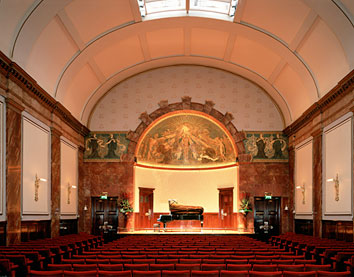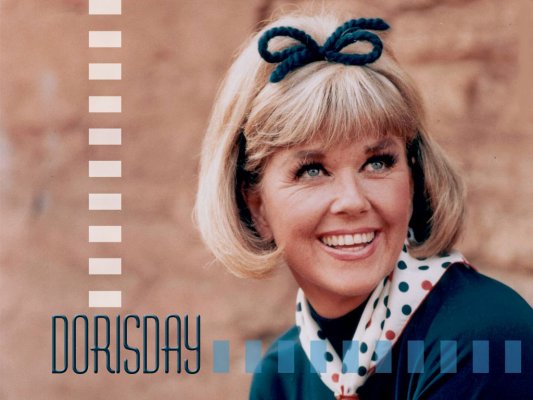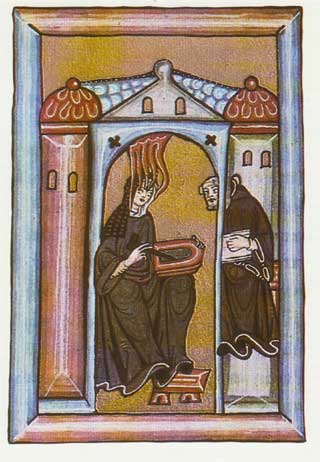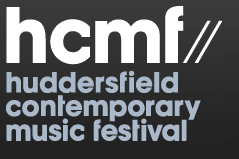|
|

I was lucky enough to attend one of Interpol’s Dublin gigs recently, the 2nd time I’ve seen this great American Indie band in the past few years. As I soaked up the atmosphere and enjoyed a sense of community with fans from around the island, I marvelled at what it must be like to play in a group of this calibre, with enough history to have quite a few sing-along hits, to be able to move such large numbers of people with your music. The experience is certainly not like listening to one of their CDs – the sound was too raw and, frankly, distorted for that, yet that didn’t seem to be a big problem – we were there to hear the songs we knew, to watch these performers whose music we admire and enjoy so much.
Yet how different the classical world is – isn’t it? I remember hearing Shura Cherkassky at the 1995 Cheltenham Festival in what must have been one of his final performances. His was a name I was barely familiar with but what a joy and a privilege to hear him perform – Berg was on the programme, I seem to remember, as well as some Berio, very unusual for this performer to play the latter, I think. The sound was perfect; the charisma of the man radiated off the stage every bit as strongly as at the Interpol gig; it remains a cherished experience.
There are obviously many differences between the two genres, but also, in my experience, enough similarities to underscore for me that a good live performance can stay in the mind forever no matter what the genre. This is clearly mostly to do with the music, but also I think something to do with the sharing of an experience with others: it becomes a communal thing, stronger than something experienced in solitude. In both cases mentioned above, there was a definite sense of anticipation and of expectation; Indie or Classical, the audiences had come into special environments – music temples, if you will – to focus just on the performers and the music.
Much has been made in recent years of “getting out of the concert hall”, a certain view propounded that it is somehow too stuffy, too old-fashioned and out of date. While I’m all for experiencing art of all kinds in different environments I don’t believe for a moment that the concert hall has had its day – rather, I believe it’s still the place where the strongest memories can be forged.
4 comments

I recently spent three months as composer-in-residence to the stroke unit of a major Dublin hospital and can honestly say it was one of the most fascinating and rewarding experiences of my professional career. Part of the project involved the group of musicians for which I was writing an ‘outcome’ work (titled ‘Bewitched’) coming into the hospital every fortnight to give an open rehearsal of the latest movement as part of an hour-long performance of light and popular pieces to an audience of patients. After the first such session it really hit home that, for possibly the first time in my life, I was writing for a very specific audience, consisting of mostly quite elderly and infirm people who were not by any stretch of the imagination regular concert-goers. This necessitated a conceptual change of tack on my part as I realised I couldn’t just write any old abstract Modernist work(!) which had no connection whatsoever to the context, musical or otherwise, of the people who would be listening to the piece as it took shape over the weeks.
As luck would have it, I had very early on in the project sat in on a group physiotherapy session at which, playing throughout in the background, was a CD of music by singers the patients had grown up with, namely Doris Day and the Rat Pack. A light bulb went off in my head and I decided that segue-ing into a Doris Day song at the end of each one of my ‘songs’ (based on interviews I was making with patients, doctors and other healthcare workers) would not only provide a link with the musical experience of my audience but, if approached in the right way, could also illuminate my own music in a very interesting and, hopefully, moving way.
For instance, the very first movement is based on an interview with a young mother of thirty who suffered a stroke two weeks after giving birth to her first child and she related how she had initially been very scared as she had briefly lost her ability to speak. I also interviewed her husband who was doing a brave job of holding everything together and the bond between them was clear. When I interviewed her, a week after first meeting her, she had improved enormously and was going home that very day. However, in her interview she described beautifully her fear and confusion just after her stroke and I was able to move from my musical setting of that description into the song ‘Fly me to the moon’, with its intimations of fantasy, escape and romance, which seemed a very suitable and powerful contrast with what she had described.
Another movement is based on a speech therapy session I sat in on where the patient had been severely affected by stroke and had no speech and impaired cognition. The conversation was therefore one-sided but the therapist was so supportive and understanding that her words, which were spoken in short sentences (“What do you do with this?”, “Can you tell me?”, “Yes, that’s it!”), give a clear idea of the frustration the patient must have been experiencing. When I set these phrases to music I was able to set them exactly as they had been spoken, rhythmically and melodically, which was actually the only instance where I did this. I segued that text into the song ‘Secret Love’, and the effect is quite difficult to describe in words as there are a number of possible interpretations of why I chose this – for me, though, it is describing an aspiration for what the patient would presumably wish for herself and what those around her would wish for her: “Now I sing it from the highest hills” – the power to be heard and understood.
The final movement is a setting of a quite matter-of-fact conversation with a patient who had been mildly affected by stroke but who nevertheless was feeling – quite understandably – rather sad that his life had taken this turn: “I’m still trying to come to terms with it”, he told me; “I suppose I now have to get used to the idea that everything isn’t as good as it would have been”. These are the last words I set in the work and the movement then morphs into the song ‘Bewitched’, which begins with the line “I’m wild again, beguiled again, a simpering, whimpering child again – bewitched, bothered and bewildered am I”. This is actually a striking description of what stroke can do to people, as if like a spell has been cast, and depending on the patient the effects can bewilder or, in more extreme cases, reduce the person to a child-like dependency on others.
While the use of existing songs was not my original plan, I feel that my decision to do so was directly influenced by the patients who heard the work unfold over the weeks, and I am glad it turned out this way because I believe the work makes a much stronger impact as a result of its juxtaposition of these elements. That it made such a positive impact on its (very specific) audience convinced me that, on certain occasions at least, the notion of writing only for oneself is not always the best option.
2 comments

A director friend told me the other day about a well-known annual Irish arts festival where some events are held in the local cathedral and, although the church hierarchy is very supportive in general of the programmes, the two rules for concerts and plays there are that there must be no swearing and no blues. Because blues, of course, is the devil’s music. This reminded me of Cliff Richard’s song from a few decades ago, Why should the devil have all the good music? and the notion that did and still does exist in certain circles that there are such things as good and bad music purely because of genres rather than content. I remember, being closely affiliated in my youth with my university’s Christian Union, how there was then even a notion that Stravinsky’s Le Sacre was aberrant in some way – those naughty rhythms, perhaps.
Are these ideas simply the result of a misplaced Puritanism, the same kind which has led one bishop in Tipperary to ban concerts of any music from the local churches? Was Plato perhaps on the right track when he warned against the dangers of music because it could adversely affect the temperaments of listeners? Would he, in fact, be less worried if he could hear much of the music being written today? Because, to my ears, the notion of music as an emotional medium, a notion I cherish, seems to be out of favour with a number of today’s composers. To be sure, we are, on the face of it, far removed from the heady days of number matrices and the myriad other devices for keeping the composer and his or her music as far from each other as possible, but on closer inspection it still seems to be deeply uncool to express oneself through one’s music. Instead we are offered an endless parade (no pun intended there!) of irony and repetition, dumbed-down and numbed-up tinkling and electronica, a blurring of job descriptions between composer and sound artist warmly embraced by night-time DJs everywhere so that the last thing one can hope for, in concert or on the radio, is the opportunity to feel something.
Yes, I’m over-dramatizing the situation, but I can’t help feeling that the desire to express something – anything - is seen too often as Bad Taste, and I’m not sure how we came to be in this position, or how to get out of it. Other than to keep doing what we – we expressionists – are doing.
0 comments
 |
|
Hildegard of Bingen |
I’m becoming more and more painfully aware that I promised David quasi-regular blog postings for CT, but I now feel a little as if I have writer’s block – I feel like I should have something to say about something, but any ideas I have had recently seem to be a little self-serving or just plain dull. This is not, thankfully, an affliction (the writer’s block) that carries over to my composing, where the time available for writing still seems a little shy of the time I actually need and consequently I’m always ready and able to compose when those hours do free up. This, despite the fact that I am ostensibly a full-time composer. Where do the hours go? I do one day’s teaching a week as part of my post-Doctoral Research post requirements, but that should surely leave 4, 5 or even 6 days for writing depending on the level of workaholicicism I wish to engage with. And yet there always seems to be some rehearsal to attend, some promotion to be seen to, perhaps a little interview here or guest lecture there and there are always emails to write and reply to. Perhaps I need a secretary – or can one still get an amanuensis these days? And what about tea breaks? Perhaps if I had less of those I might write more, but then again the Reward system works very well for me.
Actually, I’ve got the first production of a new music theatre work coming up at the start of next month in Dublin – Una Santa Oscura is a bit like an opera but with no singers or text and instead a violinist is the sole protagonist (see, a self-serving blog entry). The interesting thing about this project for me, compared to my experience with writing chamber opera where one knows it’s out of one’s hands once the music is done, is that I formed the complete concept for the work myself – a staged work for a violinist inspired by aspects of the life of Hildegard of Bingen. Still, here I am willingly handing it all over to the director and finding myself very curious about what he’s done with the idea (because I haven’t had time to attend any rehearsals yet); after all, the concept might have been mine but he’s got the work of filling in the details. So, there go a number of days in the next couple of weeks with rehearsals and performances and little enough time for writing music let alone blogs.
2 comments

At the beginning of last week I spent a couple of days at the Huddersfield Contemporary Music Festival, managing to cram seven concerts into a little over 24 hours. This was the first time I’d been to the festival for some years and it was nice to go back and see what had changed (the director, some venues) and what hadn’t (quality performers, St Paul’s Hall, the cold and wet weather).
I particularly enjoyed the Nieuw Ensemble, whose two concerts contained music by young British composers and established European ones. There was much to admire and enjoy, particularly Luca Francesconi’s ‘A fuoco’, but I was struck by the fact that, to my ears at last, most if not all of the pieces from both concerts inhabited the same Mittel-European language, as if this is somehow the ‘official’ dialect of ‘supergroup’ contemporary music: highly-wrought, clearly non-tonal textures, an avoidance of a clear sense of pulse, sound progressing in waves, etc.
The Huddersfield Festival could not be accused of having a limited view of contemporary music, but when one considers the repertoire of groups like Nieuw, musikFabrik, Ensemble Intercontemporain, etc. (I’ve heard all three in concert) there would seem to be a definite hierarchy concerning ‘types’ of composer and the music they produce with regard to what gets programmed. It’s as if much of the apparently most progressive music must actually conform to a model which has been in existence for the best part of forty years, feet firmly in the Modernist camp with its associated lineage; and yet to me that definition of Modernism is now rather old-fashioned and doesn’t embrace the full breadth of the best compositional activity across the Continent.
I wonder why this is. Is it purely down to the taste of various artistic directors? Do their audiences crave only this and nothing else? Is it perhaps the difference between groups and audiences which only play and listen to contemporary music without leavening it with older music (whatever that might be)? I have no answers, but am grateful for the many other performers and groups outside the hefty, neon-name ensembles, those that also play contemporary music, that play my music; for I have a feeling that my path, and those of a number of us, will not soon cross those of the supergroups.
1 comment
|
Concert Listings Today & Tomorrow:
|